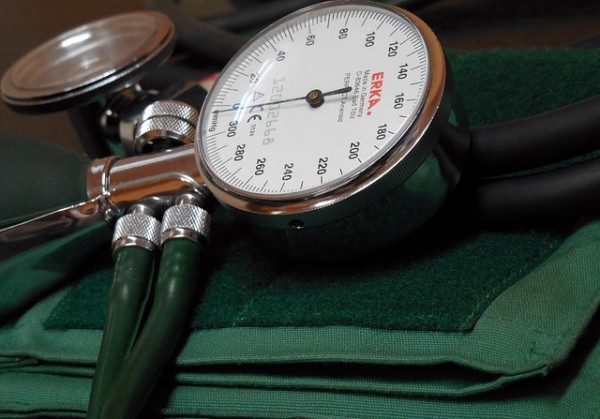Just Five Extra Pounds Can Spike Blood Pressure

Just an extra five pounds can raise blood pressure in healthy adults, according to a new study.
While the dangers of excess weight gain have been well documented, researchers said that little is known about the influence of small weight gain, which is about five to 11 pounds.
"To our knowledge, for the first time, we showed that the blood pressure increase was specifically related to increases in abdominal visceral fat, which is the fat inside the abdomen," lead researcher Naima Covassin, Ph.D., a research fellow at the Mayo Clinic in Rochester, Minn., said in a news release. "Our research suggests that healthy people who are more likely to gain weight in the stomach area are also more likely to have their blood pressure increased."
The latest study involved 16 healthy individuals with normal weight. Participants' blood pressure measurements were recorded at the beginning and end of the weight week study. The participants were then fed an extra 400 to 1,200 calories each day with their choice of an ice cream shake, chocolate bar or energy drink. Researchers noted that the average participants gained about 5 percent of their weight.
Later participants compared the blood pressure measurements of participants to those of 10 healthy and normal-weight individuals.
The findings revealed that participants who gained weight experienced a 4mm Hg increase in systolic blood pressure, from an average of 114 mm Hg to an average 118 mm Hg. Participants who gained more stomach weight also experienced greater increases in blood pressure.
However, gaining five to 11 pounds did not seem to change cholesterol, insulin or blood sugar levels.
"The public awareness of the adverse health effects of obesity is increasing; however, it seems most people are not aware of the risks of a few extra pounds," Covassin said. "This is an important finding because a five- to seven-pound weight gain may be normal for many during the holiday season, the first year of college or even while on vacation."
The findings will be presented at the American Heart Association's High Blood Pressure Research Scientific Sessions 2014.
Sep 10, 2014 05:23 PM EDT





